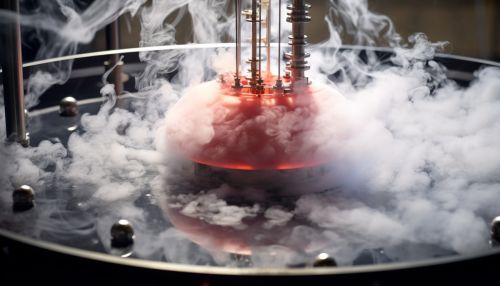Leptons
Introduction
Leptons are a group of particle physics that are a fundamental part of the Standard Model of particle physics. They are elementary particles that do not undergo strong interactions, but are subject to the Pauli exclusion principle, which states that no two identical fermions may occupy the same quantum state simultaneously.
Properties
Leptons are characterized by their spin, which is a type of intrinsic angular momentum. They have a spin of 1/2, making them fermions. This is in contrast to bosons, which have integer spins. Leptons also possess electric charge, either negative, positive, or neutral.


Types of Leptons
There are six types of leptons, known as flavours, divided into three generations. The first generation consists of the electron and the electron neutrino, the second generation consists of the muon and the muon neutrino, and the third generation consists of the tau and the tau neutrino.
Electron
The electron is the lightest lepton with a charge of -1. It is a major constituent of atoms, participating in many chemical reactions.
Electron Neutrino
The electron neutrino is a type of neutrino associated with the electron. It is electrically neutral and has a very small, but non-zero mass.
Muon
The muon is a lepton similar to the electron but with a much greater mass. It decays into an electron and two neutrinos.
Muon Neutrino
The muon neutrino is a type of neutrino associated with the muon. Like the electron neutrino, it is electrically neutral and has a very small, but non-zero mass.
Tau
The tau is a lepton similar to the electron and muon but with an even greater mass. It decays into a variety of particles, including electrons, muons, and neutrinos.
Tau Neutrino
The tau neutrino is a type of neutrino associated with the tau. Like the other neutrinos, it is electrically neutral and has a very small, but non-zero mass.
Lepton Number Conservation
In particle physics, the lepton number is a conserved quantum number that indicates the number of leptons minus the number of antileptons in an elementary particle reaction. This conservation law is considered to be nearly absolute, with the only known violations occurring in certain types of neutrino oscillations.
Leptogenesis
Leptogenesis is a hypothetical physical process that explains the predominance of matter over antimatter in the universe through a violation of the lepton number conservation.
